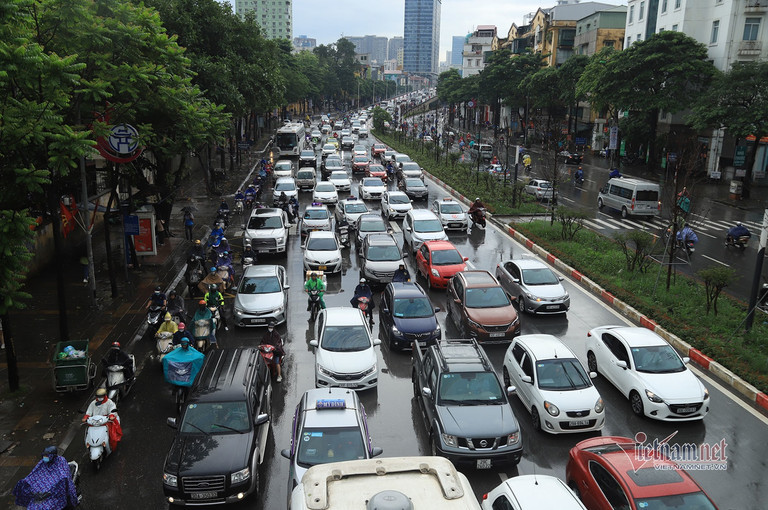
The proposal has been forwarded to the Ministry of Finance (MOF), which is drafting a government decree on imposing emission-based environmental protection fees. The ministry believes that emission fees are an effective measure to combat pollution which is getting more serious, especially in large cities.
According to MOF, emission-based environmental protection fee collection is a new policy. The current laws do not include the total volume of emissions and the content of each pollutant in vehicle emissions. Therefore, there is no basis to define the fees vehicle owners have to pay.
Furthermore, it is not feasible to collect emission fees from vehicles, especially from motorbike owners, because motorbikes are indispensable means of transport of low income earners.
“To ensure the feasibility of the emission fee collection plan, the draft decree doesn’t stipulate collection of fees from private vehicle owners,” MOF said.
In the draft decree, MOF proposes the collection of emission fees from production workshops discharging polluting emissions, and a fee of VND3 million per annum.
The fees will be higher if environment polluting substances exist in emissions, including NO2 and NO, SO and CO, with a fee of VND500-800 per ton.
The ministry emphasized that air pollution, especially in large cities, is increasingly high. The air pollution level is sometimes at an alarming level.
Meanwhile, Electricity of Vietnam (EVN) has proposed that emission-based environment protection fee should not be imposed on thermal power plants, saying that the plants now have to pay a lot of kinds of taxes and fees related to natural resources and the environment.
The collection of this new kind of fee will lead to higher electricity production costs and affect the financial balancing of thermal power plants, according to EVN.
Only a few countries collect emission-based environmental protection fees, while most countries just impose the fees on greenhouse gas emissions.
According to the Vietnam Chamber of Commerce and Industry (VCCI), petroleum and coal products are subject to environmental protection tax. Meanwhile, MOF is still attempting to impose fees on industrial emissions (dust, CO, Sox and NOx). As such, industrial production facilities using coal and petroleum during the production process will have to pay dual tax for the same behavior.
In reply, MOF said the environmental protection tax and emission-based environment protection fee are two different kinds of receipts. If emissions have lower content than the content stipulated in the national technical regulations on industrial emissions, the owners can enjoy preferential fees with 25-50 percent reduction.
Vu Diep